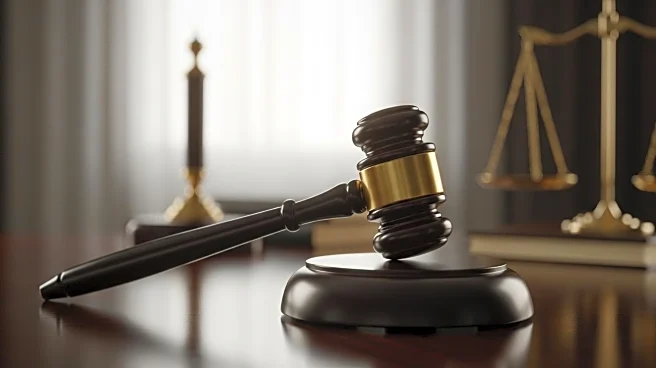What's Happening?
Recent court rulings have posed significant challenges to President Trump's policies and executive actions. The judiciary has played a crucial role in scrutinizing and halting some of Trump's initiatives, including his use of the Alien Enemies Act to deport alleged gang members and the imposition of tariffs under emergency powers. The 5th US Circuit Court of Appeals ruled against Trump's invocation of the Alien Enemies Act, stating it was unlawful as the US is not in a declared war. Additionally, a federal appeals court in Washington, DC, struck down Trump's tariffs, citing misuse of emergency powers. These rulings highlight the judiciary's role in checking executive overreach, especially as Congress has largely stepped aside.
Why It's Important?
The judiciary's actions underscore its role as a critical check on executive power, particularly in the absence of congressional intervention. These rulings have significant implications for U.S. policy and governance, affecting areas such as immigration and international trade. The decisions against Trump's use of emergency powers for tariffs could impact global trade relations and economic strategies. Furthermore, the judiciary's stance on immigration policies reflects ongoing debates about executive authority and constitutional rights. These developments may influence future legal interpretations and the balance of power between government branches.
What's Next?
The legal battles are expected to continue, with several cases likely heading to the Supreme Court for final resolution. Trump's administration plans to appeal the rulings, including those related to tariffs and the use of federal troops in Los Angeles. The Supreme Court's decisions will be pivotal in determining the extent of executive power and could set precedents for future administrations. Stakeholders, including legal experts and civil rights organizations, will closely monitor these developments, as they could reshape U.S. policy and governance.
Beyond the Headlines
These court rulings may have broader implications for the interpretation of wartime authorities and emergency powers. The judiciary's resistance to Trump's policies could signal a shift towards more stringent checks on executive actions, potentially influencing future administrations. The legal challenges also highlight the tension between different government branches and the importance of maintaining constitutional balance. As these cases progress, they may prompt discussions on the ethical and legal boundaries of executive power.










